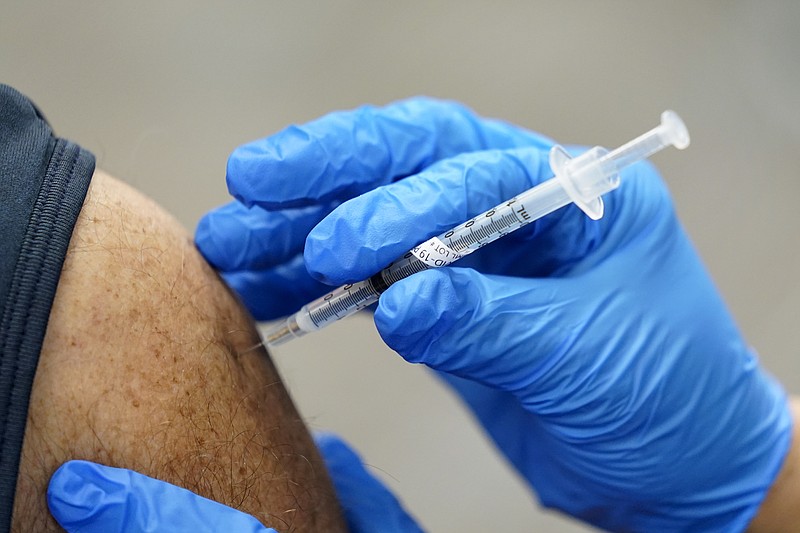As the state works through the first phases of its coronavirus vaccine rollout, a new poll released Monday finds that about 23 percent of Missourians would "definitely not get it."
The poll, conducted by the Virginia-based American Viewpoint for the Missouri Hospital Association, surveyed 800 Missourians in the first week of January on their feelings about taking a COVID-19 vaccine.
Of those surveyed, about 58 percent said they are very or somewhat likely to be vaccinated, while 38 percent said they are not too likely or not at all likely to seek out a vaccine.
When the vaccine is available, 40 percent said they would get it right away, 23 percent said they would wait to see how it's working and 11 percent said they would only get it if required.
"Those least likely to get the vaccine include middle-aged voting adults, Republicans and those who identify as conservative," the poll noted.
Meanwhile, older adults, especially men and Democrats, were most likely to get the vaccine right away, the poll said.
The hesitancy among residents to receive a vaccine underscores the challenge the state faces in communicating the safety and effectiveness of the vaccines already being administered to frontline healthcare workers and long-term care facilities throughout the state. Pfizer's vaccine is 95 percent effective, and Moderna's vaccine is 94.5 percent effective.
"Broad vaccination is the key to response and recovery in Missouri," MHA President and CEO Herb Kuhn said in a news release. "Although the vaccine is not available to the public currently, it will be essential to have an informed, confident and energized public as we move into the widespread distribution phase of vaccination efforts."
Overall, about seven in 10 Missourians are somewhat or very confident the vaccine will be distributed fairly - with skepticism highest among African American participants at 42 percent. The survey's results mirror what similar polls have found nationwide.
African Americans have been disproportionately affected by the virus' spread, due to disparities in access to healthcare, jobs as essential workers on the front lines and more.
Across the country, Black and Latino Americans are nearly three times more likely than white Americans to die from the novel coronavirus. In Missouri, the rate of COVID-19-related deaths for African American Missourians is 1.9 times the rate for white Missourians and 1.4 times the rate for the entire state, according to MHA's news release.
However, the state lacks complete demographic data and does not know the ethnicity for nearly 23 percent of COVID deaths.
Efforts to reach specific communities are underway, with the state emphasizing working with community newspapers to reach Black residents and researchers partnering with Black churches to improve COVID testing.
The poll also looked at where participants lived. Respondents in Springfield and the Columbia-Jefferson City area were most likely to not plan on being vaccinated. Meanwhile, trust and confidence that the vaccine will be distributed fairly was lowest in Kansas City and the St. Louis area.
Steven Edwards, president and CEO of CoxHealth in Springfield, said in a news release that the vaccines have been through extensive clinical trials and urged residents to consider taking one in order to move past the pandemic.
"Even if you believe you are at low risk, please consider it your civic duty to be vaccinated," Edwards said. "Protecting our fellow citizens can only happen with significant public support for vaccination."
The Missouri Independent is a nonprofit, nonpartisan news organization covering state government and its impact on Missourians.

